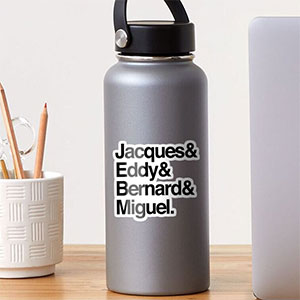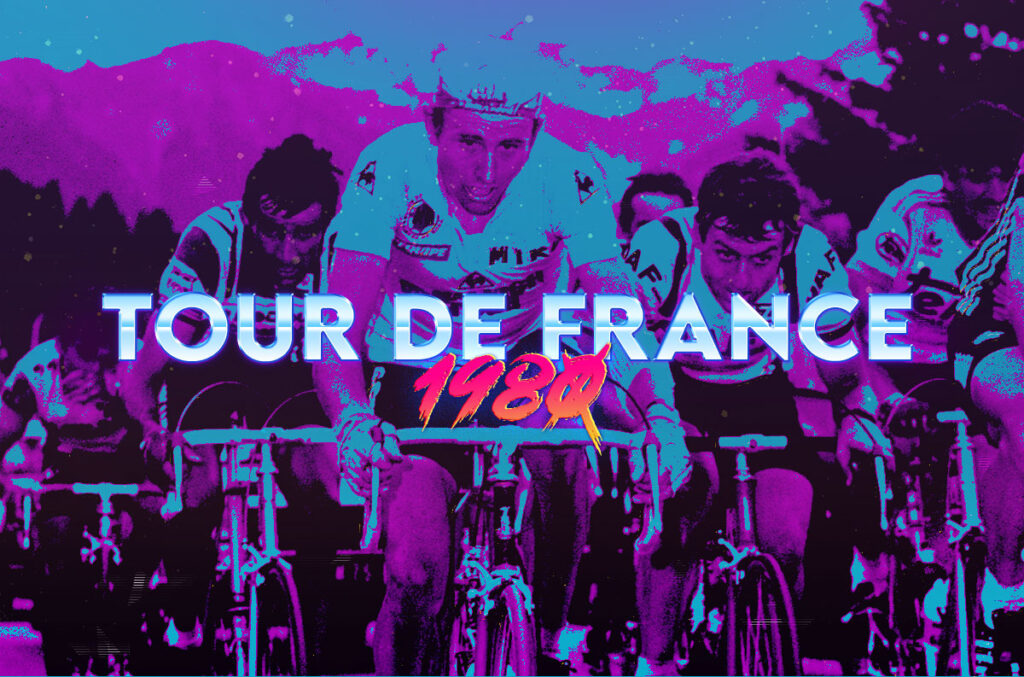
1980. The start of a new decade. Disco was dying. New musical waves had emerged. The world was modernizing and cutthroat capitalism was driving the march to a terrible new normal.
In the cycling world, it also felt like a period of upheaval. While the sport had a whole supporting cast of legends and mythical moment, the 1970s had undeniably been dominated by Eddy Merckx. The Beglian, widely considered the all-time greatest cyclist, didn’t achieve any major wins after 1975, but he remained in the sport as a living legend until his retirement in 1978.
A young upstart had disrupted Merckx’s salad days. Bernard Hinault had announced himself in characteristically belligerent fashion by refusing to let Merckx and company win the rigged post-Tour kermesses unless he also got a cut of the prize money. Proving he could do more than spoil criteriums, he won the Tour in 1978 and 1979, thereby cementing himself as the new patron of the peloton and earning the nickname le blaireau due to his aggression on the bike. By the time the 1980 Tour de France started, he’d already won that year’s Giro d’Italia and was looking to complete the famous double.
Le Tour Begins
Three men took to the start line as favorites. Bernard Hinault (Renault-Gitane), who was looking for his third consecutive Tour win and first Giro-Tour double. Joop Zoetemelk (TI-Raleigh), who had been the runner up in the past two editions of the Tour, and who had recently moved to the TI Raleigh dream team. And Hennie Kuiper (Peugeot), who’d finished second in 1977 and fourth in 1979.
Contemporary Tours de France play to a nostalgic vision of the sport. They long to participate in storytelling about very specific nation and sporting narratives, while also invoking memories of a sport built on triumph and glory before becoming sullied by postmodernity.
But the 1980 Tour route was actually unrecognizable to modern fans, despite Prudhomme’s fetish for memoires du cyclisme.
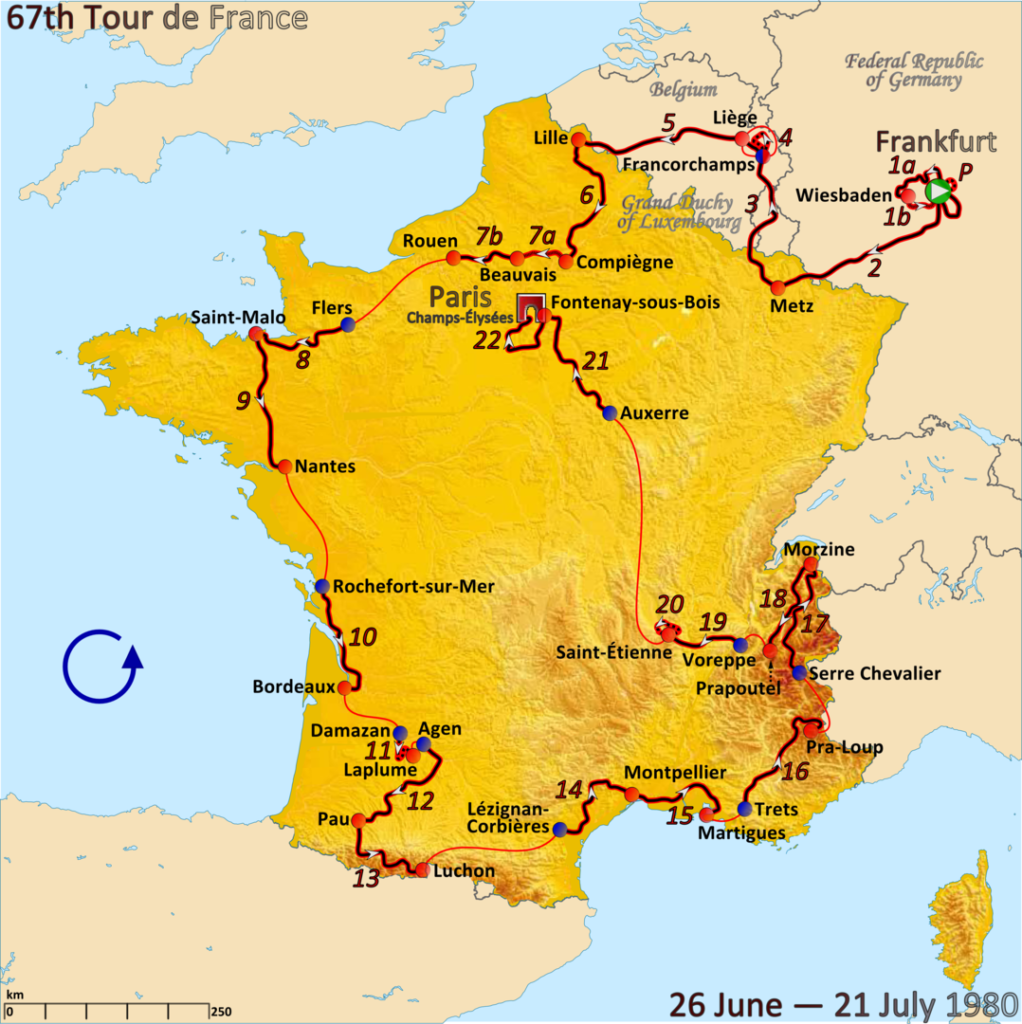
Over the three and a half weeks of the race from June 26 to July 20—a Thursday start!—the riders covered 3842km over 25 stages. Actually, they officially only completed 22. Day one was a Prologue in Frankfurt, and stages One and Seven were split into two stages. Yes, in 1980, the peloton had ridden three stages before the first Friday night. And it gets better.
Stage 1a was a flat, 133km sprint stage from Frankfurt to Wiesbaden. Both were in a country called West Germany. The sprint was won by classics legend, then-World Champion, and all-round cool guy, Jan Raas, though Bernard Hinault’s Prologue win kept the defending champion in the yellow jersey. At the end of the stage, the riders organized into teams for Stage 1b: a 46km team time-trial back to Frankfurt. This stage was won by Jan Raas’s TI-Raleigh team. This time the yellow jersey did change hands, to Gerrie Knetemann.
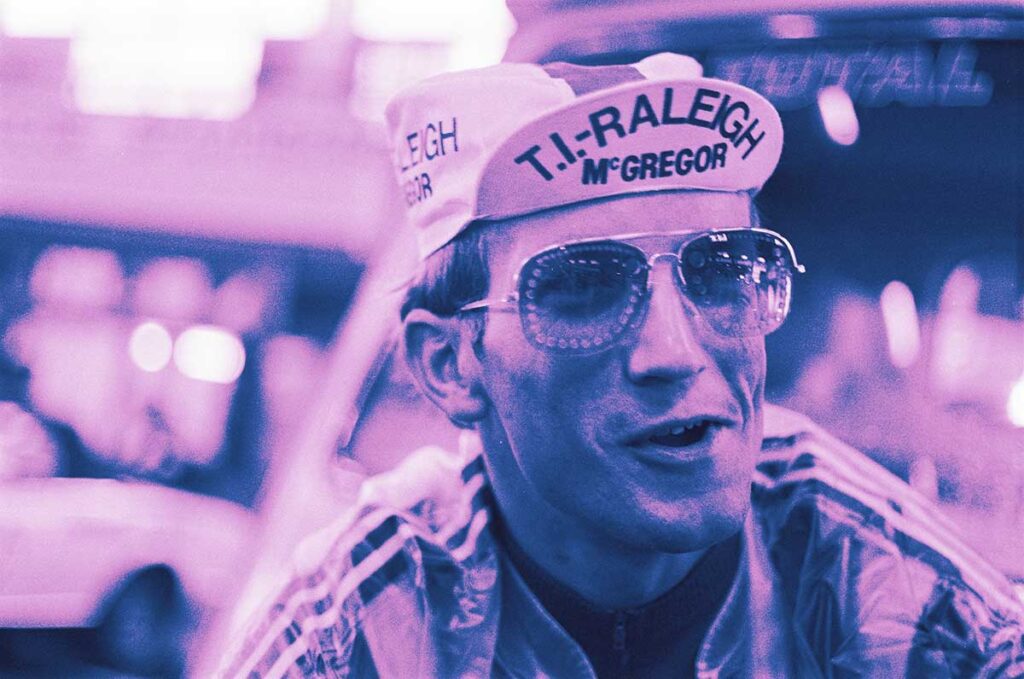
Jan Ullrich’s mentor and drug dealer… keeper-awayer, Rudy Pevenage, won Stage Two from a breakaway that pulled out almost ten minutes on the peloton. The yellow jersey changed shoulders again, this time going to Pevenage’s breakaway companion Vyon Bertin. Bertin lost ground on Stage Three and Pevenage took the yellow jersey, giving it four wearers in as many days.
Stage Four was an individual time trial. What, another one already? Like time-trials? Getting three of them out of the way in the first five days of racing could make it seem like it’d be slim pickings for the testers for the remaining 19 stages, but in fact the 1980 Tour included six time-trials, for a total of 240km of racing against the clock. That’s three individual time-trials, two team time-trials, and one prologue.
Bernard Hinault inevitably won, dominating the 35km route around Spa (Belgium) so much that second-placed Joop Zoetemelk emerged pleased that he’d only lost 1’16” to the Frenchman. Hinault was the champion-elect and the race hadn’t even made it to France. Can we get a “Tour Over” in the chat?
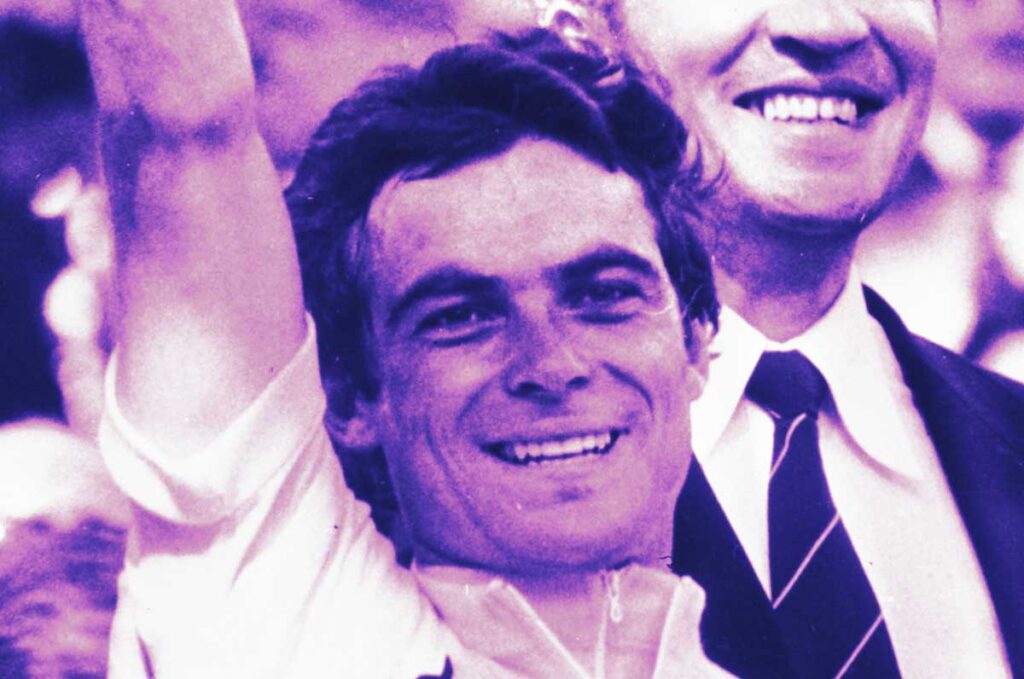
Stage Five took the riders from Liege to Lille, with brutal cobbled sections along the way. Before the race, Hinault had protested at their inclusion and threatened a riders strike, and terrible weather on the day vindicated his outrage. Never one to sit back and lick his wounds, Hinault took his rage out on the world, attacking with Hennie Kuiper and dragging the Dutchman all the way to the finish. The defending champion won the stage by more than two minutes over the peloton, giving him his third stage win of the first week and putting him four minutes ahead of Zoetemelk.
Following the stage, Hinault and many other riders in the peloton reported tendonitis symptoms, likely caused by the cobbles and weather conditions. In response, the Tour organizers removed the first 20km of cobbles from Stage Six, which was uneventfully won by Jean-Louis Gauthier.
Stages 7a and 7b mirrored Stages 1a and 1b. A team time-trial opened the day, followed by a flat sprinters stage. Like Stages 1a and 1b, TI-Raleigh and Jan Raas won both stages. Stage Eight was won by another TI-Raleigh rider, the team’s third stage win in a row: the excellently-named Bert Oosterbosch took the win. TI-Raleigh’s tactic of constantly attacking to prevent Hinault from opening any further time gaps on their leader seemed to be not only working, but paying incredible dividends.
Going into the first rest day, Rudy Pevenage held the yellow jersey, with Hinault dominating the unofficial general classification among the genuine contenders for the overall.
Rest Day One (July 5, 1980)
The best song of 1980.
Week Two: A Shock Withdrawal
Jan Raas took his third individual win of the 1980 Tour on Stage Nine. A day later, his team mate Cees Priem won Stage 10 into Bordeaux. The TI-Raleigh team had now won five stages in a row. They were dominating the race in every aspect but the general classification.
Stage 11 was a time-trial. Well, they hadn’t done one for a couple of days. The race had been flat so far, but was finally approaching the mountains. The time-trial would be the final marker the overall contenders could set down before the race headed into the Pyrenees.
Roles shockingly reversed over the 52km though, and this time it was Zoetemelk who took the win. Hinault finished fifth, 1’39” behind Zoetemelk. The TI-Raleigh team had chipped away at the Frenchman’s lead over the course of the week, and now Zoetemelk’s stunning victory put him just 21 seconds behind Hinault as the race headed into the Dutchman’s preferred mountainous territory. In a bittersweet moment, Hinault had finally claimed the yellow jersey from Rudy Pevenage, but Zoetemelk had become the overall favorite.
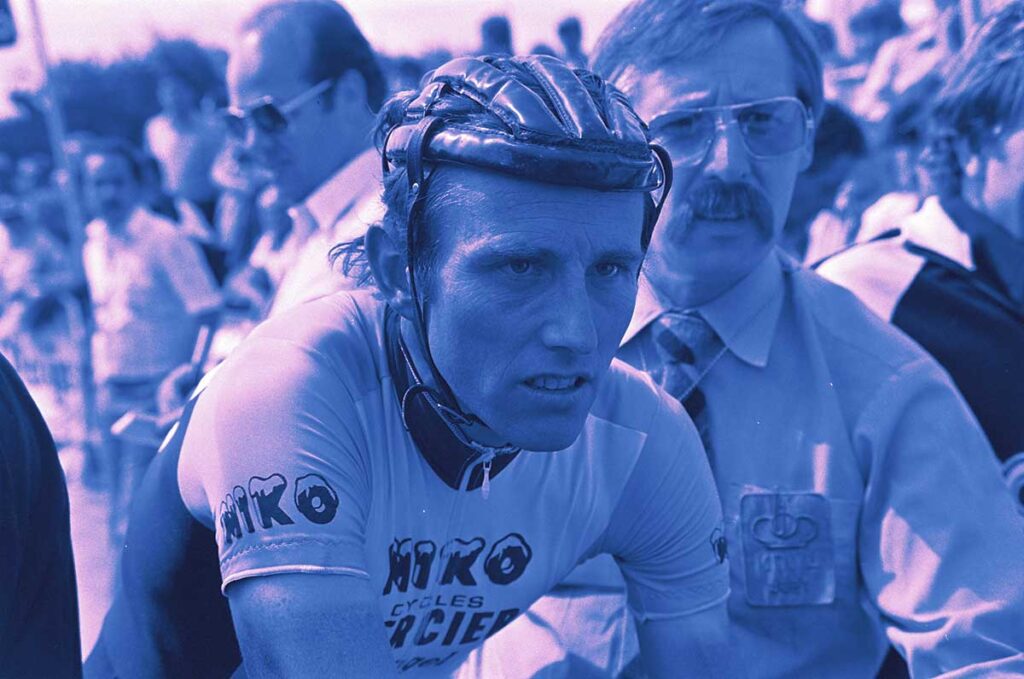
Hinault, for his part, was suffering with the tendonitis in his knee. After a flat Stage 12 to Pau, won by Gerrie Knetemann for a seventh TI-Raleigh stage victory in a row, Hinault withdrew from the race rather than face the Pyrenees in pain. Zoetemelk inherited the yellow jersey but, in a nod to Eddy Meckx in 1971, refused to wear it on Stage 13.
Zoetemelk was not the gung-ho attacking force of Hinault. The race’s new favorite was a conservative rider, favoring a catenaccio style of steady control – a sadly recognizable tactic in 2021 due to its effectiveness. He allowed Raymond Martin to escape and win Stage 13, then autopiloted to the finish to retain his 1’10” lead over second-placed Hennie Kuiper.
Two transition stages to the Alps followed. Stage 14 was won by Ludo Peeters, and Stage 15 by Bernard Vallet ahead of 1975 and 1977 Tour winner Bernard Thevenet.
Headed into three consecutive Alpine stages, the Tour introduced a bizarre rule: the last rider in the general classification after the stages 16 to 19 would be eliminated. Jos De Shoenmaecker won Stage 16, but drama emerged behind him as Zoetemelk crashed heavily after a collision with a team mate. He recovered, returned to the front group, and eventually opened a 16 second gap on Kuiper.
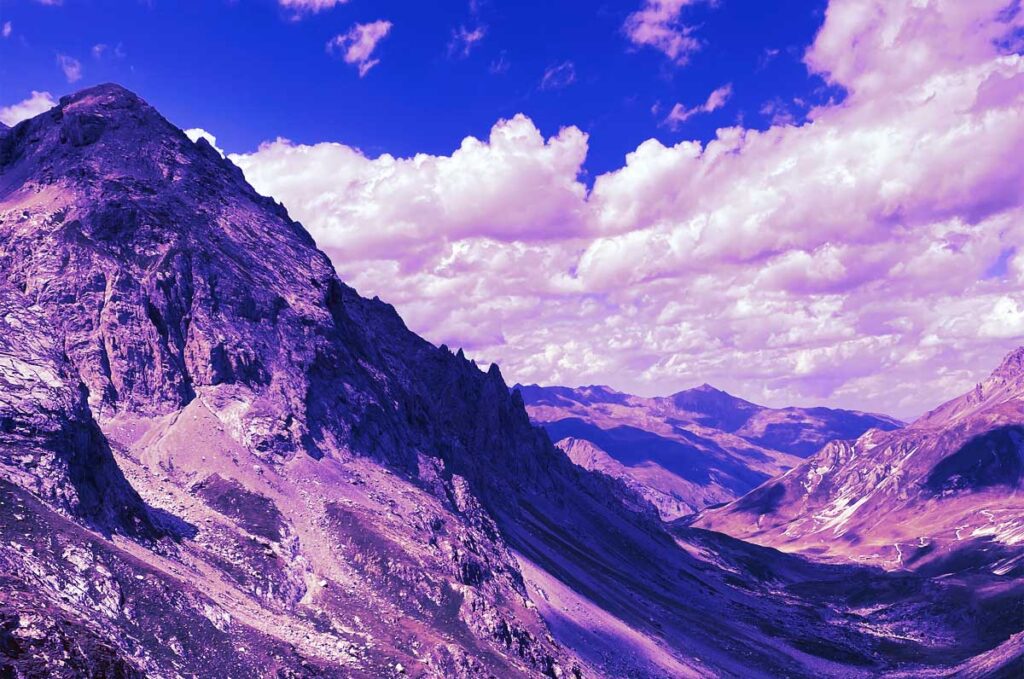
Zoetemelk was feeling the effects of the crash during Stage 17. He wasn’t able to control the race as he’d like as it crossed the Galibier, and found himself in danger of losing major time. But by the final climb, he’d closed the gap and even cracked Kuiper to take another 1’30” from his closest rival. But ahead, Raymond Martin in third place felt empowered to attack the race leader, and comfortably dropped him to close his time deficit.
With just five stages left, Zoetemelk went into the rest day as the race’s clear favorite, albeit a favorite who’d shown a significant vulnerability.
Rest Day Two (July 15, 1980)
Apt advice for the Covid-19 era.
Week 3: Victory is Inevitable
The final mountain stage, Stage 18, saw one of the most remarkable rides of the Tour. Ludo Loos escaped alone, summiting all five cols and winning the stage by five minutes over the peloton. Behind him, Zoetemelk extended his leads over Martin and Kuiper by a minute and 2’30” respectively. Martin and Kuiper switched places in the general classification, and the race for second place became the only remaining source of interest for fans.
Zoetemelk’s victory was so assured that Tour director Jacques Goddet wrote in l’Equipe that the only thing that could possibly prevent it was the result of the drug test that had followed Stage 18. Rumors followed that Zoetemelk’s A-sample had tested positive for anabolic products, but they proved to be false: all doping tests were negative.
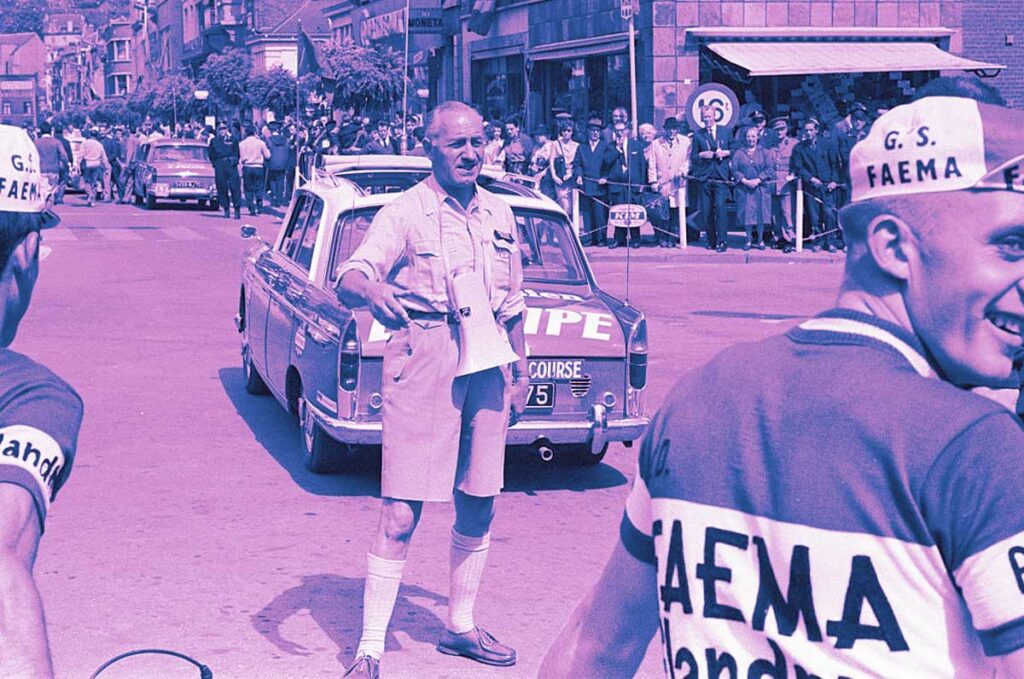
Sean Kelly won Stage 19, his second career Tour stage win. But not his last.
Zoetemelk dominated the final (final, final) time-trial on Stage 20, and ended the day seven minutes ahead of Hennie Kuiper, who moved back into second place ahead of Raymond Martin.
Sean Kelly won Stage 21 on the Champs Elysees. Zoetemelk crossed the finish line with Gerrie Knetemann, having taken his first and only Tour de France win in dominating fashion. His Ti-Raleigh team won 11 stages in total.
Final Results
General Classification
Points Classification
| 1 | Rudy Pevenage (BEL) | IJsboerke–Warncke Eis | 194 |
|---|---|---|---|
| 2 | Sean Kelly (IRE) | Splendor–Admiral | 153 |
| 3 | Ludo Peeters (BEL) | IJsboerke–Warncke Eis | 148 |
Mountains Classification
